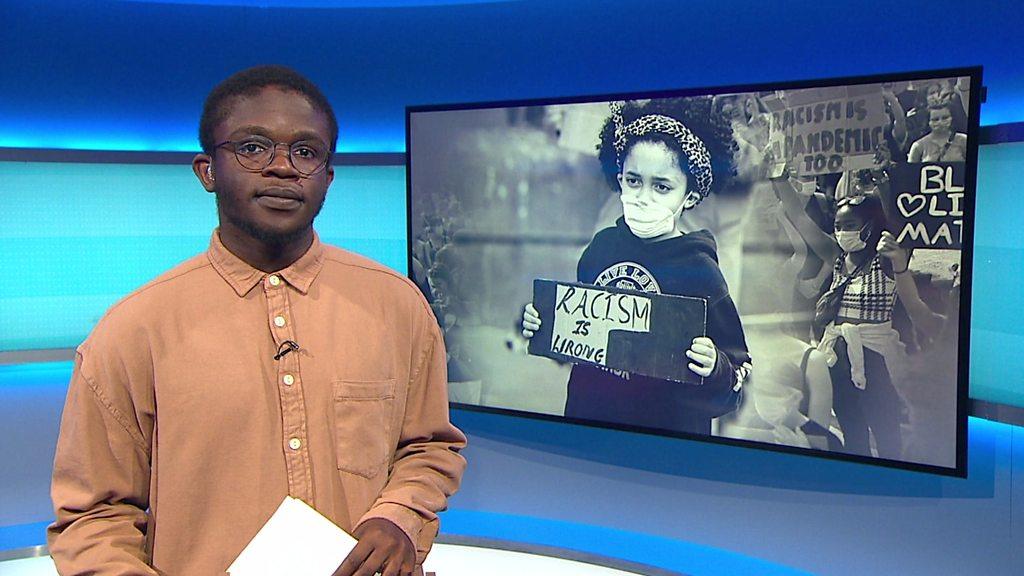Juneteenth: What is it and how important is the holiday in the US?
- Published
- comments
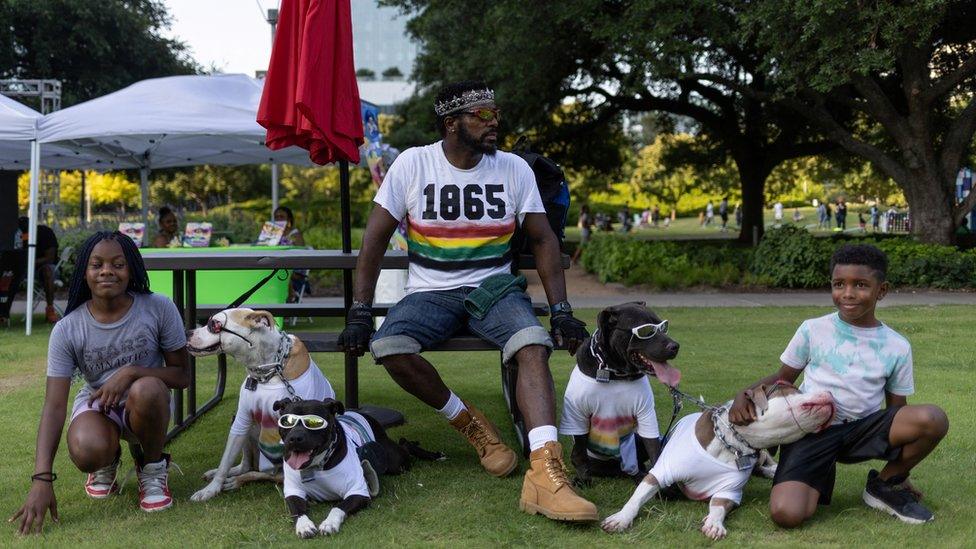
A family and their dogs celebrating Juneteenth in Texas
Juneteenth is a national annual holiday celebrating the end of slavery in the United States.
On 19 June 1865 the last enslaved African-Americans in the US, in Galveston in the state of Texas, were told they were free.
The day became known as Juneteenth, a word created by joining the words 'June' and 'nineteenth' together.
It's also known as Emancipation Day, Juneteenth Independence Day, or Cel-Liberation Day.
Although the day has a very rich history and a special meaning for families all over the US, outside of the US many people haven't heard about it.
Juneteenth: What happened on 19 June 1865?
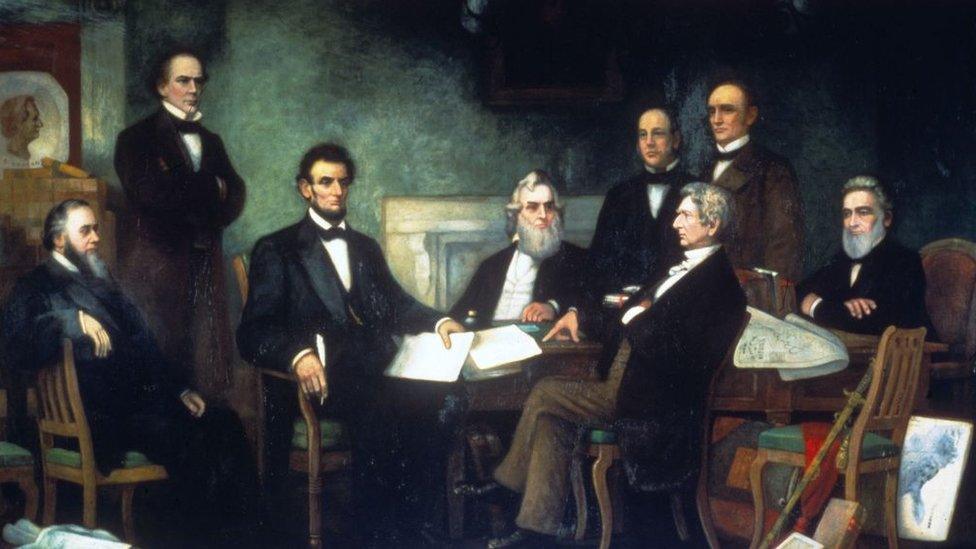
President Abraham Lincoln's Emancipation Proclamation declared that all slaves in rebel-held territory would be 'thenceforward, and forever, free'.
Congress, the part of the US government that passes laws, had actually passed the 13th amendment, which abolished slavery, in January 1865. However the law wasn't made official by the Senate - another part of the US government who check laws - until December of that year. This meant slavery was not officially outlawed until the end of the year.
However, a presidential proclamation had been issued more than two and half years earlier by US President Abraham Lincoln to help bring about the end of slavery in the United States.
The Emancipation Proclamation meant that more than three and a half million enslaved people living in the Confederate states in the south were declared to be 'free' - but this freedom depended on the Northern states, who disagreed with slavery, winning the civil war.
Southern and Northern states disagreed about the role of slavery in society, which ultimately led to the civil war (a war between organised groups within the same state or country).
Texas was very far from the national government in Washington DC, so wasn't as well regulated by federal officials once the civil war was over. This meant the Emancipation Proclamation wasn't very well enforced.
On June 19, 1865, US Army General Gordon Grainger formally told the state of Texas that the Emancipation Proclamation was coming into effect in the state.
The declaration by General Grainger is seen by many as the end of slavery as it finally brought the practice to an end in the last state, Texas, using slaves.
How significant was Juneteenth?
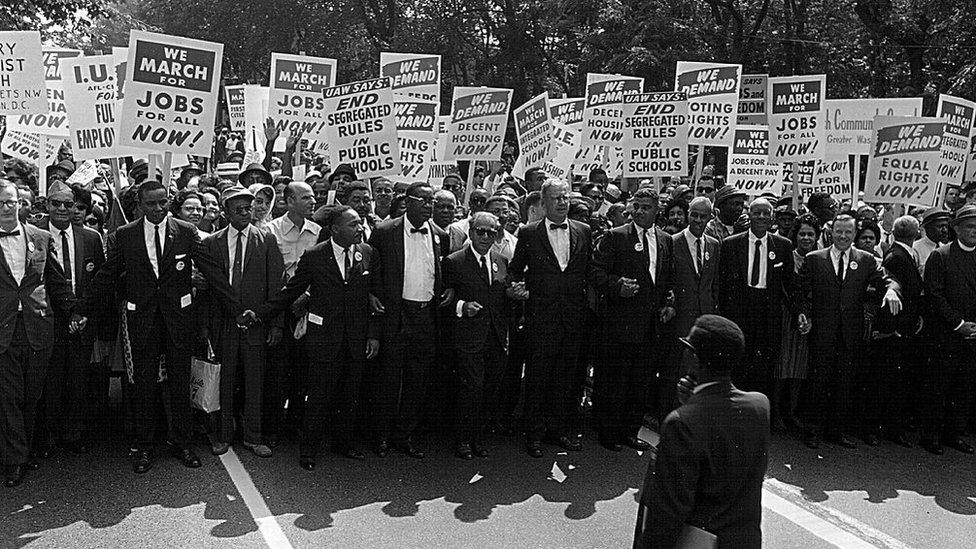
The outlawing of slavery in 1865 did not mean black and white Americans were treated equally.
This was because of what was known as the Jim Crow laws, which denied black people equal rights.
These laws were created to force black people to live, work, and play separately from white people, known as segregation. The aim of the laws were to remove black people's right to an education, to have good healthcare, to vote and to be able apply for senior jobs.
The purpose of the Jim Crow laws was to make sure that, even though slavery had ended, black Americans did not have equality; could not enjoy the same privileges white people had or be treated the same.
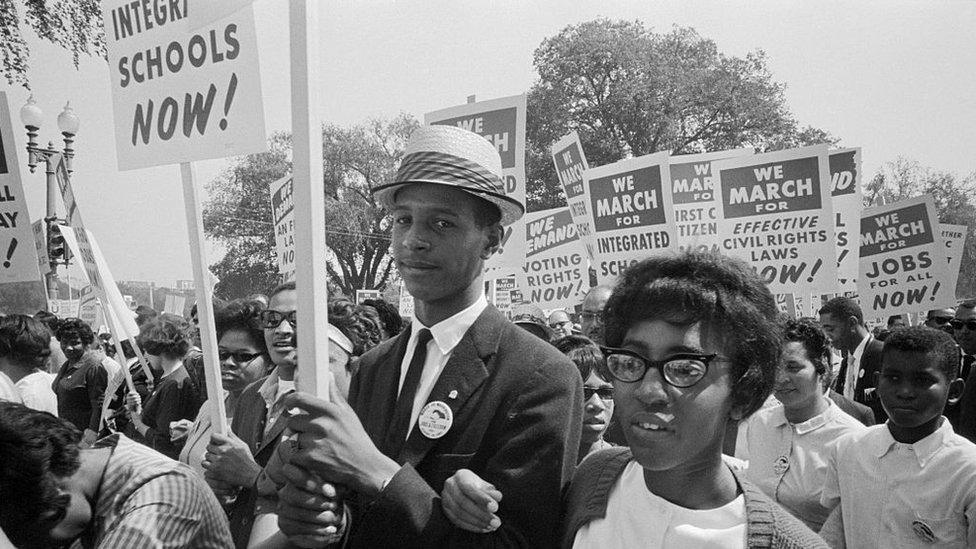
Black people were not permitted to use the same public places as white people, and there were separate areas for them.
Juneteenth celebrations declined until the rise of the civil rights movement in the 1960s.
But in 1968, the Poor People's Campaign held a Juneteenth Solidarity Day, reviving interest in the holiday.
What is the history of Juneteenth?
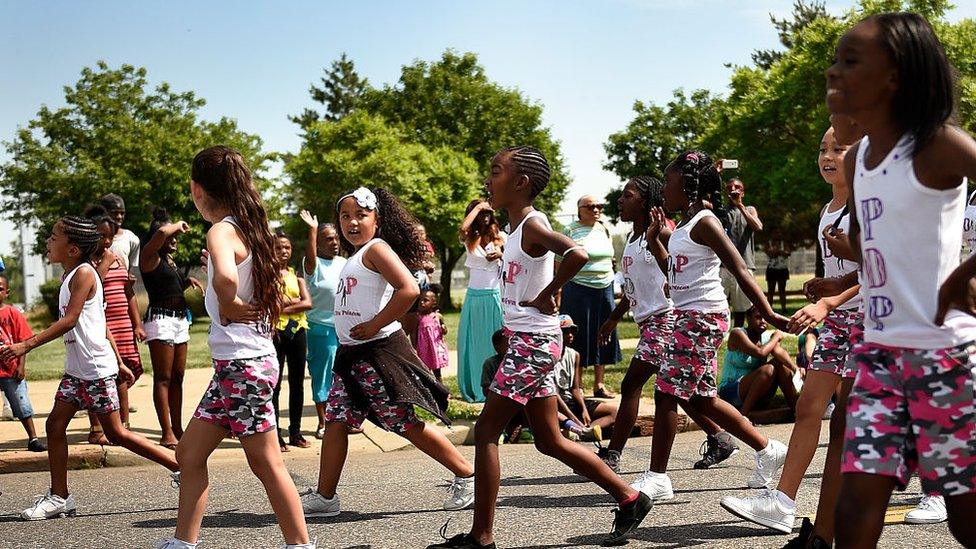
The first Juneteenth celebrations took place in Texas in 1866, with family events such as meals, parades, musical performance and prayers.
As time went by, the descendants of those who had been enslaved became part of the celebrations too, and some families would travel to Galveston to commemorate the event.
Different communities developed their own traditions, which went with them if they relocated to different parts of the USA.
How is Juneteenth celebrated today?
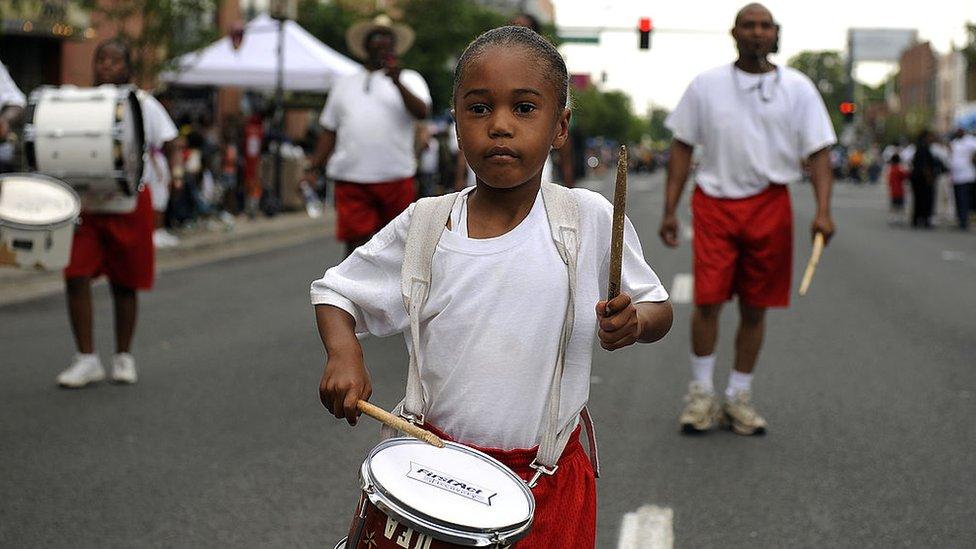
Juneteenth celebrations and traditions vary across the US. In some states there are parades, and people gather for food and to play games.
As well as public readings and singing, picnics and church services, in some states rodeos, contests, concerts and parades are also organised.
Food also plays an important part, with barbecues being one of the most popular ways of marking the day with family and friends.
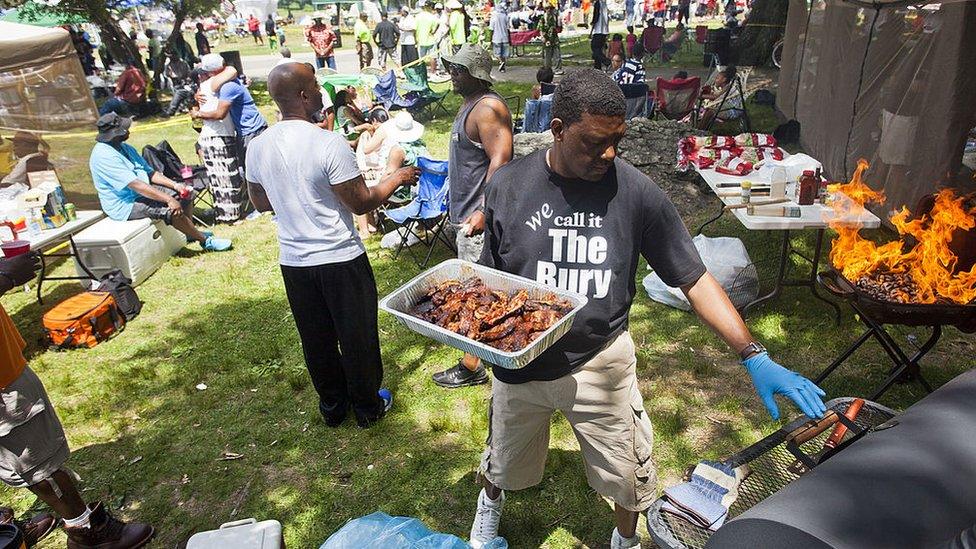
People make and eat red food and drink 'red soda water' or strawberry soda.
The most famous dish is called the Marcus Garvey salad - named after the black activist who created the Universal Negro Improvement Association.
The salad is made with red, green, and black beans - the colours of the Marcus Garvey, or Pan-African, flag.
Is Juneteenth a national holiday?

Juneteenth became an official state holiday in Texas in 1980. Since then, 45 other states and the District of Columbia have also recognised the day.
On 17 June 2021 President Joe Biden signed a bill in the White House, to make Juneteenth a national holiday in the US, by law.
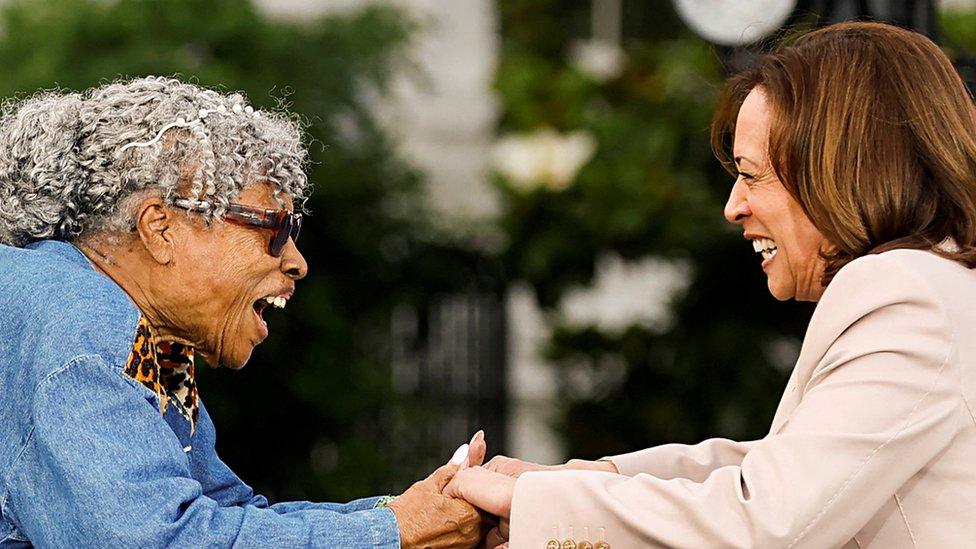
Speaking about the signing he said: "Great nations don't ignore their most painful moments.", "We come to terms with the mistakes we made. And remembering those moments, we begin to heal and grow stronger."
"I've only been president for several months, but I think this will go down for me as one of the greatest honours I will have had as president." said Mr Biden.
What is the Juneteenth flag?
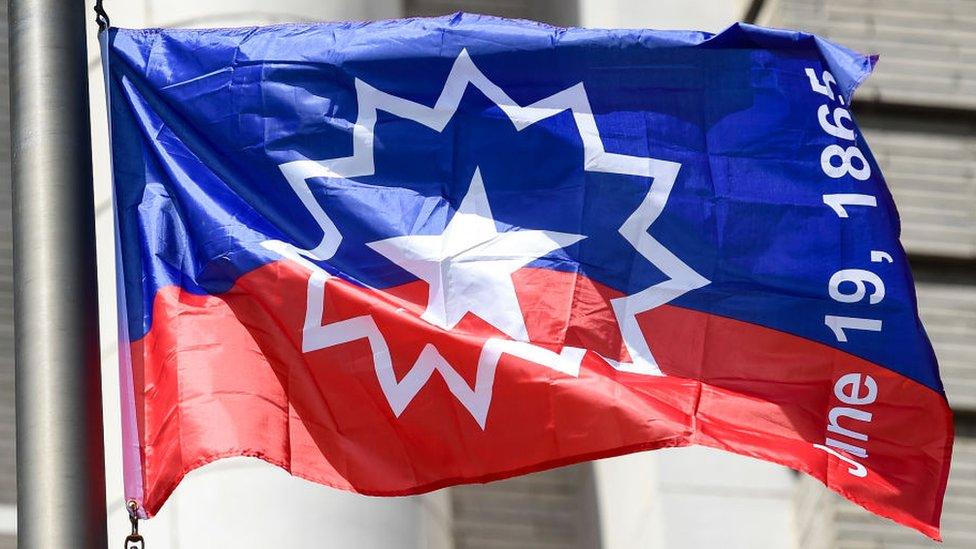
This is the Juneteenth flag, but there are different flags that people use to celebrate or commemorate the day.
- Published9 June 2020
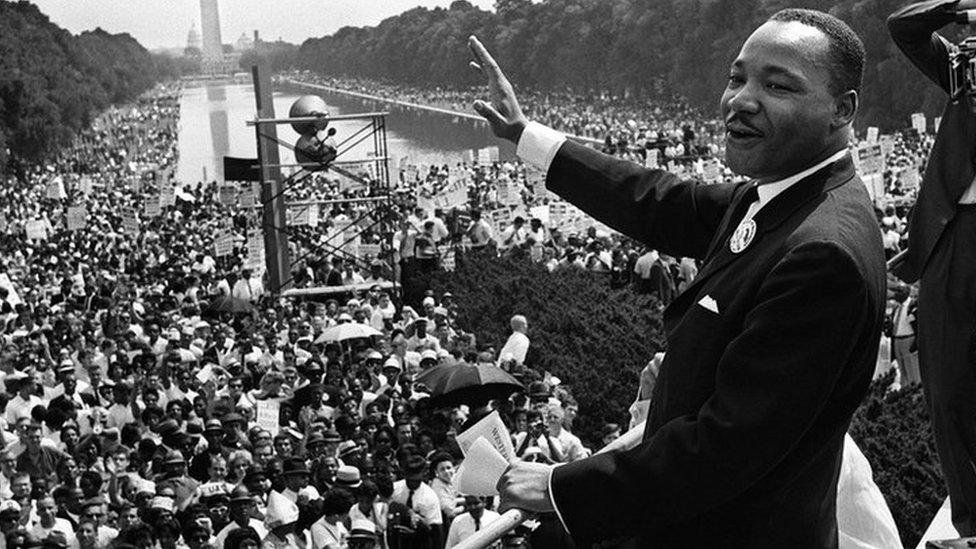
- Published9 June 2020
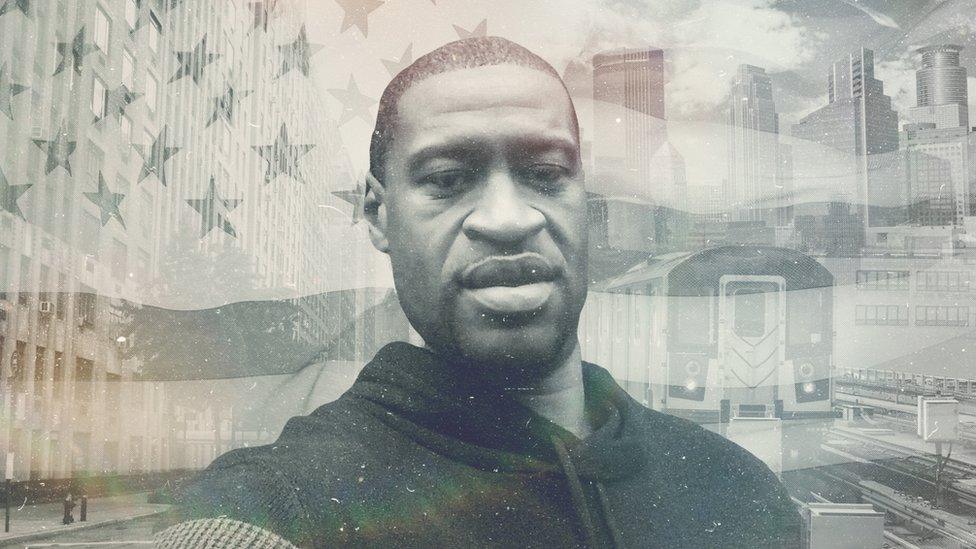
- Published17 June 2020
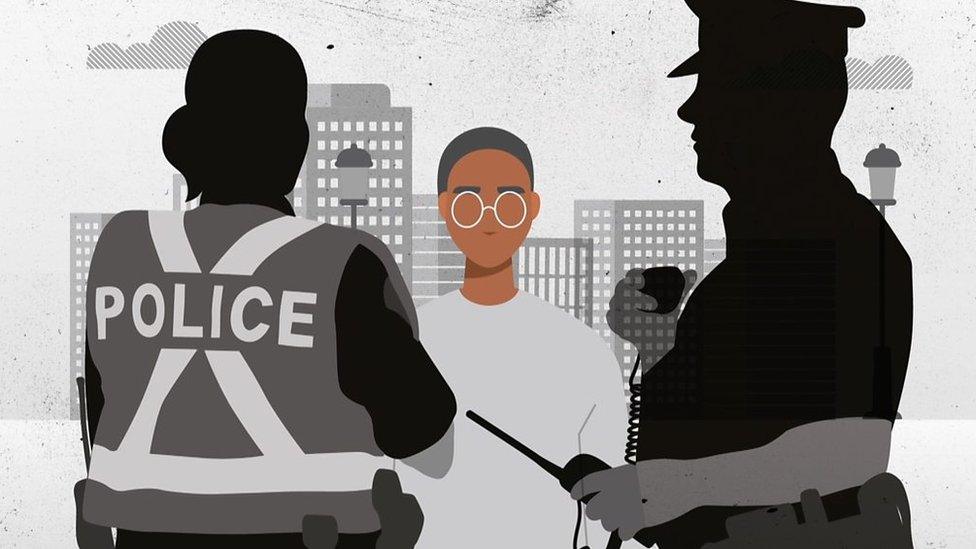
- Published17 June 2020
